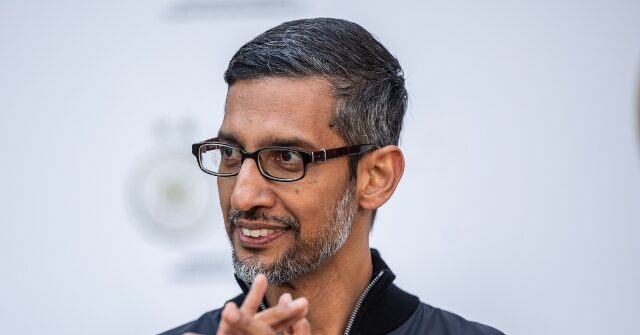The remedies trial to address Google’s search monopoly verdict began Monday in Washington, D.C., with the company arguing that a breakup proposed by the DOJ would put the United States at a disadvantage in the global race for technological supremacy, particularly against China.
CNBC reports that as Google faces the consequences of an August ruling that found the company held an illegal monopoly in its core market of internet search, the tech giant is pushing back against the DOJ’s proposed remedies. In a blog post, Google Vice President of Regulatory Affairs Lee-Anne Mulholland stated that the DOJ’s proposal to divest the company’s Chrome browser unit and open its search data to rivals would “hamstring how we develop AI, and have a government-appointed committee regulate the design and development of our products.”
Google’s main argument is that such measures would hinder American innovation at a critical juncture, as the United States competes with China for leadership in the next generation of technology. Mulholland specifically named China’s DeepSeek as an emerging AI competitor, emphasizing the importance of Google’s continued efforts in making scientific and technological breakthroughs.
The three-week remedies trial, which began Monday in Washington, D.C., will determine the consequences of the guilty verdict from August. Judge Amit Mehta is expected to make his ruling in August, at which point Google plans to file an appeal. The company plans to argue that the DOJ’s proposals go far beyond the court’s decision and would ultimately harm consumers, the economy, and the country’s technological leadership.
Google also intends to defend its Chrome browser, stating that it provides freedom and helps people access the web, with its open-source code being used by other companies. The company warns that opening its search data, such as search queries, clicks, and results, to other companies would introduce cybersecurity and national security risks while increasing the cost of devices.
The DOJ, on the other hand, maintains that Google’s agreements continue to insulate its monopoly in search. The department plans to bring testimony from Nick Turley, ChatGPT’s head of product, and Perplexity Chief Business Officer Dmitry Shevelenko.
Despite Google claiming to be America’s champion against China, the company has a long history of cooperating with the communist country. This ranges from opening AI labs in the country, to planning a censored search engine, the infamous Project Dragonfly:
The Intercept reports that Internet titan Google has plans to launch a censored search engine in China that will blacklist access to certain websites and restrict search terms related to human rights, democracy, religion, and peaceful protest, according to leaked documents.
The Google project, codenamed Dragonfly, has been in development since Spring of 2017, and was accelerated in December 2017, following a meeting between Google CEO Sundar Pichai and top Chinese government officials. Google engineers have created custom apps named “Maotai” and “Longfei,” which have already been demonstrated for Chinese officials and could be launched within the next six to nine months.
Currently, Google’s search service cannot be accessed in China, meaning that the company is missing out on quite a large ad market, something which this new project likely hopes to fix. China employs a digital censorship system known as the “Great Firewall of China” that prevents citizens from accessing websites such as Google and Facebook, it would appear that Google’s new search engine will comply with strict Chinese censorship laws in order to operate within the country.
Read more at CNBC here.
Lucas Nolan is a reporter for Breitbart News covering issues of free speech and online censorship.
Read the full article here


